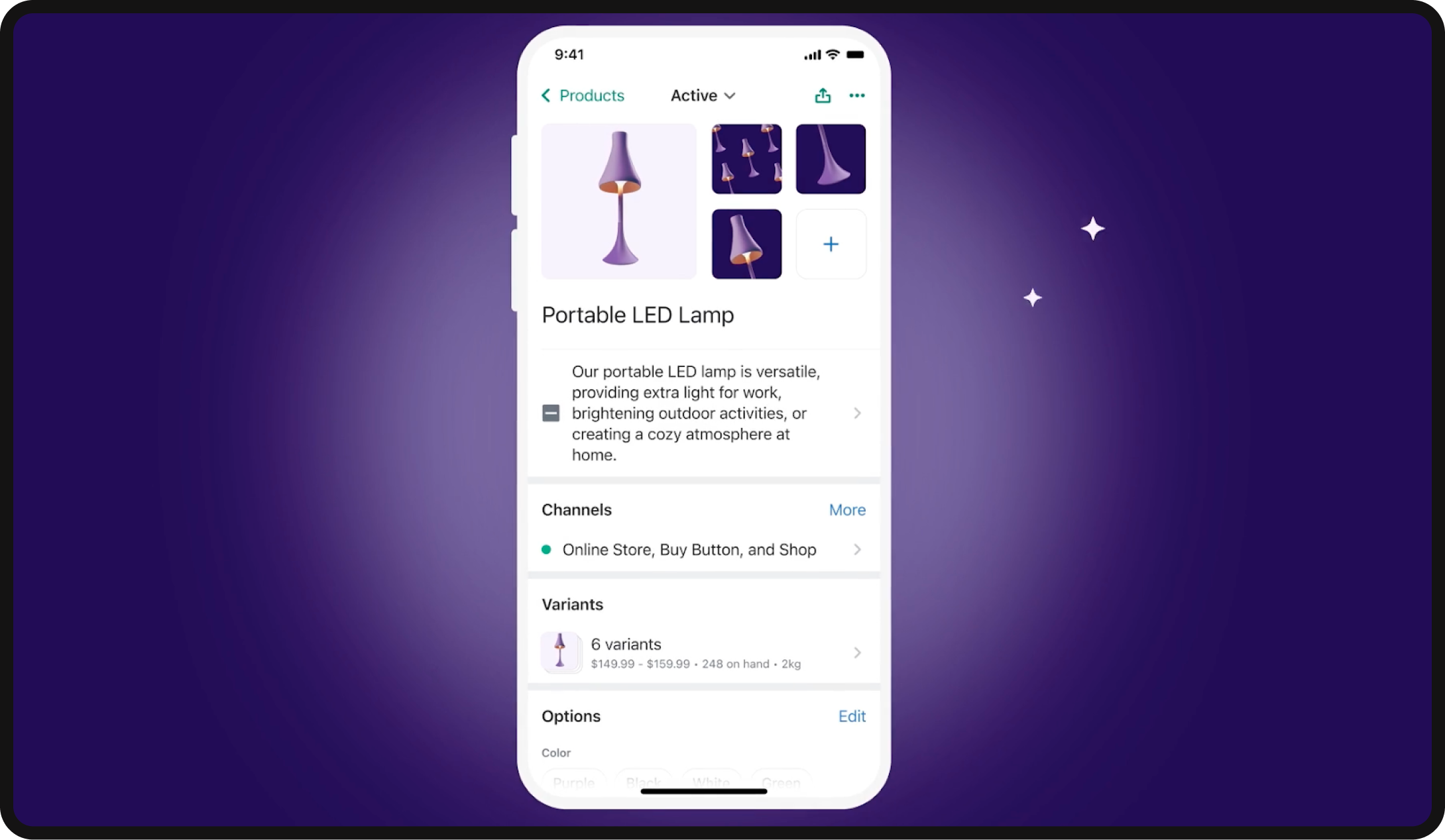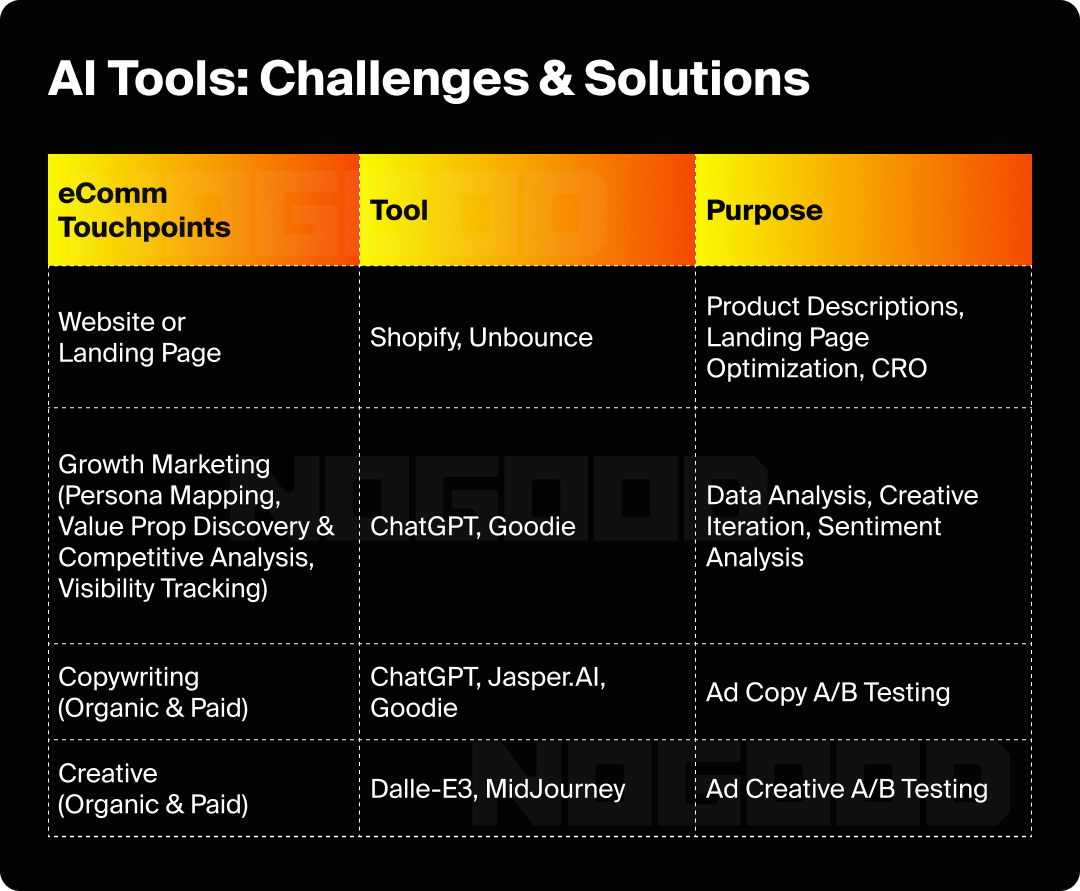The digital landscape, particularly in eCommerce, has seen a dramatic transformation over the years. One of the key drivers of this change has been the role of data, namely its collection, analysis, and utilization. Artificial Intelligence (AI) continues to set new benchmarks in this domain, turning real-time insights into previously unattainable customer behavior data. This article will dive into the ways AI has revolutionized eCommerce marketing.
How Is AI Used in eCommerce?
A consistent flow of customer data aggregation combined with the continuous training of Large Language Models (LLMs) creates a virtuous feedback loop. This ultimately leads to an eCommerce business providing their potential customer with a more targeted and effective online shopping experience.
Using AI can sound daunting or offputting, but we’ve all experienced it for years, even before “AI” had entered our daily lexicon. As consumers, we’ve felt AI’s effects for years and years.
Have you ever seen Amazon suggest “Products you might also like”? This one small example shows how AI has already used large amalgamations of consumer data to drive value to the end-user since long before the launch of ChatGPT.
Top AI Use Cases in eCommerce
Behind the scenes, AI already powers much of the online shopping experience. Let’s take a quick look at some practical, high-impact use cases of AI in eCommerce:
1. Intelligent Logistics
AI improves supply chain accuracy by predicting delivery times, delays, and inventory needs using real-time signals and historical data. The result? Fewer out-of-stock items, better planning, and happier customers. You can thank AI for getting your order to you on time and with little to no problems.
2. Smarter Product Recommendations
Similar to the Amazon example above, AI analyzes browsing habits, purchase history, and user behavior to suggest items that match a shopper’s preferences. This process improves conversion rates and Average Order Value (AOV).
3. AI-Driven Customer Support
AI chatbots in eCommerce serve as virtual agents that handle FAQs, order updates, and simple transactions, giving human reps the bandwidth to tackle more complex issues. This improves response time without increasing support overhead.
4. Dynamic Pricing
AI-powered tools can adjust prices in real time based on factors like demand, inventory, and competition. This ensures that offers stay competitive while maximizing margin. You’ve undoubtedly experienced this: think trying to buy flights or purchasing event tickets off of a resale market.
5. Smarter Segmentation
AI enables deeper audience segmentation by continuously analyzing customer traits and behaviors. It helps marketers deliver more relevant messaging and identify new high-value segments faster than manual methods.
How to Build an eCommerce Website With AI
We live in an era where customer experiences serve as the cornerstone of eCommerce businesses, and data aggregation provides the backbone. This combination plays a pivotal role in personalizing marketing campaigns, creating seamless personalized experiences, and even driving online business decisions. As competition within the retail industry increases, understanding customer interactions at a granular level has changed from an advantage to a necessity.
An online retailer’s website serves as its digital storefront, a crucial touchpoint that can make or break the customer experience. Whether you’re unveiling a brand-new site or fine-tuning a landing page based on valuable insights, Artificial Intelligence offers a multitude of avenues for enhancing user engagement and satisfaction.
Shopify’s AI-Generated Product Descriptions feature serves as a prime example of this in action. This innovative tool simplifies a labor-intensive process (crafting compelling product narratives) by transforming it into a seamless, efficient task, contributing to a more cohesive online shopping experience.
While human editing remains essential for high-ticket items or for items in sensitive categories, the ability to scale personalized content across thousands of SKUs without compromising quality provides a clear competitive advantage.




Additionally, retail businesses can use AI to improve their customer experience while saving costs on human labor. One quick guess: you would probably prefer speaking to a human over a robot in a situation where you need customer service, right?

Well, that might not be true for much longer with artificial intelligence tools in the picture. Brands can utilize AI to enhance their customer service offerings with robust AI-powered chatbots. To make a chatbot “smarter” with AI, you:
- Teach it to comprehend how people naturally speak so it understands what they ask for.
- Next, you keep updating its “knowledge” based on what it learns from talking to customers, making it better over time.
- Lastly, you ensure that if the bot gets stumped or the conversation gets tricky, it knows when to pass the chat to a real person for help.
Chat-GPT-powered Duolingo Max serves as one example of how AI has already revolutionized the way users engage brands and their relevant products. In this case, Duolingo users use Duolingo Max as a conversational way to learn new languages.

Best-Practice Tip: Train your chatbots to handle a wide array of queries but also to recognize when to hand off to a human agent.
One AI use case that you might be familiar with is the Amazon subscription service that offers lower pricing for recurring product subscription purchases. As a part of this feature, Amazon uses Artificial Intelligence to make suggestions if you are running low on quantities of recurring product purchases and suggests that you restock before you run out.
Let’s turn this into an example: Amazon has a customer who orders a supplement as part of their Subscribe & Save program. On average, the customer places one order every 7-9 weeks. With AI, Amazon can predict when the customer will likely run out of product, prompting a CTA to repurchase the product with enough time for delivery so that the customer never goes without the needed product. When brands use AI to drive more purposeful and intentional interactions with the customer, the customer notices. A customer experiencing such a timely, helpful prompt will prove more likely to continue to purchase with the brand.
AI allows for personalization at scale, and customers respond to personalization with their wallets. This concept is nothing new; McKinsey published a study all the way back in 2021 highlighting how personalization, when done well, can produce a major boost to the bottom line. Not only that, but consumers expect personalization. The same study showed that more than 70% of consumers expect brands to personalize their experience, and more than 75% of consumers get frustrated when they don’t receive that unique treatment from a brand.
Retailers using AI-powered tools like Amazon Personalize or Algolia Recommend tend to see quick gains in average order value and engagement by offering shoppers a more intuitive discovery journey. As LLMs integrate further into on-site search and product filtering, these experiences will become increasingly conversational, intelligent, and user-centered.
Predictive Analytics & Inventory Management
Inventory management operates in the shadows as the unsung hero of eCommerce businesses. While not as glamorous as marketing campaigns or user interfaces, inventory management remains absolutely crucial for smooth operations and customer satisfaction. In an industry where timing is everything, having the right product available at the right time can make or break a sale; and a customer relationship. By leveraging AI for predictive analytics, eCommerce retailers can forecast inventory needs with remarkable accuracy, ensuring they remain one step ahead of consumer demand.
Imagine running an online fashion store. With the holiday season approaching, you don’t know how many units of a new trendy sweater to stock. AI can come to the rescue by analyzing historical sales data and current fashion trends. It can even predict how many sweaters you should expect to sell, allowing you to stock just the right amount. Plus, AI continuously evolves. The more it experiences, the better it gets. For brands, this means no more overstocking leading to steep discount sales and no more frustrated customers finding their size out of stock at the moment of purchase.
AI-Driven Customer Segmentation & Personalization
The use cases for AI in eCommerce have almost no end, and segmentation and personalization offer another fascinating angle worth exploring. Advanced AI algorithms can sift through massive datasets to identify patterns and segments that might not draw the human eye. These insights can prove incredibly valuable in tailoring personalized marketing campaigns on social media platforms.
Segmentation, creative and messaging experimentation, and garnering continuous learnings serve as keys to success for any business. With advances in AI and Generative AI, businesses can now employ AI-driven customer segmentation in their paid social campaigns.
Let’s delve into how AI tools like ChatGPT or MidJourney can significantly enhance your paid social campaigns, particularly in the eCommerce sector.
Robust A/B Testing Frameworks
Traditional A/B testing often involves manual effort and is limited by human biases and capabilities. AI tools can automate this process, designing hundreds of tests simultaneously to identify the most effective messaging and creative components. This is crucial for eCommerce businesses where even a slight increase in CTRs (click-through rate) alongside conversion rate optimization can translate to substantial revenue gains.
Tailored Advertising Strategies
One of the most compelling features of AI in advertising is its ability to create highly customized strategies. By analyzing vast sets of data, AI can identify nuanced audience segments and tailor ad copy and creative elements to resonate with these specific groups.
For instance, an AI tool can craft LinkedIn ad copy targeting C-suite executives in the Fintech industry, or develop Meta ad copy aimed at homeowners interested in remodeling. These tailored solutions maximize engagement and performance metrics, ensuring a higher ROI on your advertising spend once users hit your landing page.
Data-Driven Creative Ideation & Copywriting
AI tools can also assist in the creative process by analyzing historical data and current market trends. This enables them to offer creative ideation that is not just innovative, but also grounded in data. Whether generating compelling headlines, crafting persuasive body copy, or even suggesting visual elements, AI can significantly speed up and enhance the creative process.
Comprehensive Analytics & Insights
One of the most transformative aspects of AI in paid social campaigns is its ability to provide in-depth analytics and insights. AI tools can track a multitude of metrics in real time, from customer engagement rates to conversion metrics, and offer actionable insights. This data-driven approach allows for agile adjustments to campaigns, ensuring optimal performance at all times.
Automation Via AI Agents
The next phase of AI will take us from using excellent AI tools to the era of employing AI agents. While they may stem from chatbots, agents offer more than a helpful assistant. They actually do the work for you. Agents don’t require constant supervision, and can check off task after task for hours on end without human intervention. Whether you train your own agent to generate blogs, create marketing collateral, provide campaign performance insights and recommendations, or pay for a pre-trained agent’s services through a third party that can track AI visibility, for instance, your productivity can skyrocket.
AEO for eCommerce
Similarly to how tools like Ahrefs can help with eCommerce SEO, AI tools can also track AI visibility and more, so you can bring more potential customers into your funnel; or figure out why they’re missing. ChatGPT, Perplexity, Gemini, AI Mode, and other LLMs prepare potential customers for purchase better than traditional SERPs, making your eCommerce Answer Engine Optimization (AEO) efforts critical to sales.
Goodie, for instance, offers visibility tracking across leading LLMs, as well as traffic and attribution, copywriting, sentiment analysis, and AI optimization services, so make sure to employ an AEO tool like Goodie to avoid falling behind on the future of search.
AI Tools: Challenges & Solutions

As much as AI thrives on data to make intelligent predictions and improve customer experiences, there’s a growing challenge that can’t be ignored: the tightening regulations around personal data privacy. Social platforms like Meta have become more restrictive about data collection. In this environment, the value of first-party data (information willingly and directly provided by customers) becomes paramount.
Businesses, especially in eCommerce, must strengthen their first-party or even zero-party data touchpoints. This data comes when customers voluntarily offer information, perhaps through surveys or personalized account settings, which can be invaluable for targeted marketing and personalization. Balancing technological advancement with ethical data collection practices serves as the new tightrope that eCommerce businesses must walk.
Brands must now actively earn trust and incentivize users to share meaningful preferences. Interactive quizzes, loyalty programs, post-purchase surveys, and gated content are now central to gathering usable insights for AI engines. The brands best positioned to thrive in this landscape will be those that treat data collection as a value exchange; offering more tailored experiences in return for transparency and control. AI doesn’t replace the need for ethical data use, it magnifies it.
Mastering eCommerce AI
The realm of eCommerce is no longer just about transactions, it’s about experiences. At the heart of these experiences sits data, smartly leveraged through the power of Artificial Intelligence. From enhancing customer service with AI-backed chatbots, as seen with innovative platforms like Duolingo Max, to smart inventory management and hyper-personalized marketing campaigns, AI is not just a technological advancement; it’s a paradigm shift.
In this context, it’s worth noting that platforms like Shopify offer a range of AI-powered tools designed specifically for online retailers. These tools can help businesses optimize their websites, from generating product recommendations based on user behavior to automating customer service interactions.
AI can be a game-changer for eCommerce businesses in paid social advertising through automating A/B testing, providing tailored advertising strategies, aiding in creative ideation and copywriting, and offering robust analytics. The integration of AI into your paid social campaigns for your eCommerce brand can result in more effective advertising strategies that are both creative- and data-driven, ultimately leading to a higher ROI.
However, like all powerful tools, AI comes with its challenges. In an era where data privacy is becoming increasingly paramount, businesses must adapt, prioritizing first-party data and ethical practices.
This isn’t merely about compliance; it’s about building trust and long-term relationships with customers. As the digital landscape continues to evolve, the eCommerce businesses that will truly stand out will be those that seamlessly blend technology, ethics, and an unerring focus on customer experience aided by AI, but including and centered on humans.






